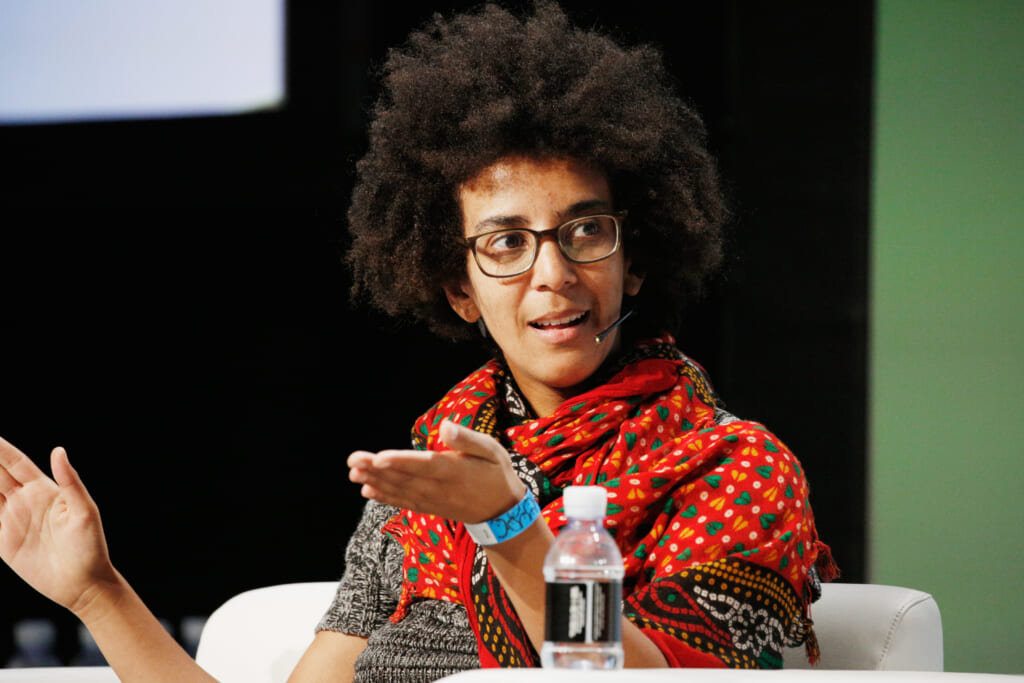Ex-Google AI ethics expert Timnit Gebru to launch anti-bias research institute
Gebru was terminated as Google's ethical AI leader in Dec. 2020 after critiquing the company's practices in a research paper
Dr. Timnit Gebru on Thursday announced her post-Google plans for fostering the ethical development of artificial intelligence technology — launching an independent research institute of her own. The prominent computer scientist’s new move comes after her controversial firing from the global search engine.
Districuted Artificial Intelligence Research Institute (DAIR) is the latest space Gebru has created to continue her inquiry into the capacity of AI and other emerging technologies that may be embedded with biases against marginalized communities.

The Ethiopian-born researcher of Eritrian descent was fired by Aphabet Inc.’s Google in Dec. 2020 after co-releasing a research paper claiming to identify ethical risks involved in the company’s models for digitally processing human language, the Washington Post reported.
Gebru told the Post she envisions DAIR as existing outside the realm of Big Tech yet influencing the industry to adopt ethical AI policies.
“I’ve been frustrated for a long time about the incentive structures that we have in place and how none of them seem to be appropriate for the kind of work I want to do,” she said, adding that the industry largely accepts the potential harms of new technologies as inevitable and silences those who offer critiques.
DAIR has already received support from the MacArthur Foundation, Ford Foundation, Kepor Center, Open Society Foundation and the Rockefeller Foundation, which have collectively invested approximately $3.7 million into the new institute.
“AI is not inevitable, its harms are preventable, and when its production and deployment include diverse perspectives and deliberate processes, it can be beneficial,” the institute’s official mission statement reads.
According to NPR, Google faced an onslaught of backlash for Gebru’s termination and issued an apology in December 2020 after more than 2,000 employees signed an open letter that called her firing “research censorship” and “retaliatory.”
Google’s chief executive Sundar Pichai said in the apology, “I’ve heard the reaction to Dr. Gebru’s departure loud and clear: it seeded doubts and led some in our community to question their place at Google.”
Gebru, whose departure from Google lowered the company’s already dismal 1.6% employment rate of Black women, called out the search engine for perpetuating a toxic environment rampant with racism and sexism after being informed of her termination.
Gebru said Pichai painted her as a stereotype in emails to employees and multiple of her colleagues agreed that his statement was nothing but a formality and “meaningless PR.”
“Don’t paint me as an ‘angry Black woman’ for whom you need ‘de-escalation strategies’ for,” Gebru tweeted in response to her termination, proceeding to describe the “toxicity” she experienced during her tenure as co-lead of the company’s ethical artificial intelligence team in a string of follow-up posts.
“This loss has had a ripple effect through some of our least represented communities, who saw themselves and some of their experiences reflected in Dr. Gebru’s,” Pichai added in his apology.
“It was also keenly felt because Dr. Gebru is an expert in an important area of AI ethics that we must continue to make progress on — progress that depends on our ability to ask ourselves challenging questions.”
theGrio’s Keydra Manns contributed to this report.
Have you subscribed to theGrio podcasts, ‘Dear Culture’ or Acting Up? Download our newest episodes now!
TheGrio is now on Apple TV, Amazon Fire, and Roku. Download theGrio today!


